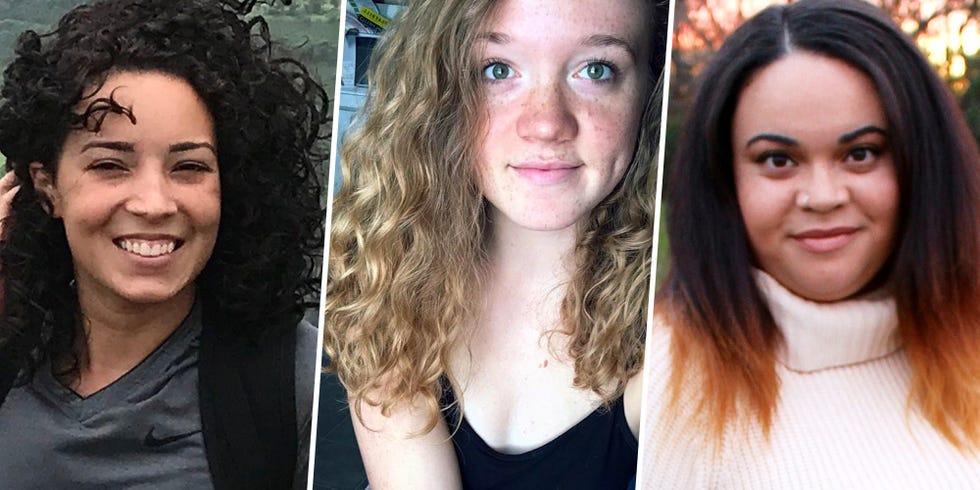What You’ll Never Understand About Being BiracialPosted in Articles, Identity Development/Psychology, Media Archive, United States, Women on 2018-02-15 01:37Z by Steven |
What You’ll Never Understand About Being Biracial
Marie Claire
2018-02-05
 Courtesy from left: Samantha Ferguson, Sarah Heikkinen, Kayla Boyd |
Black people don’t have freckles.”
Those were the words that reverberated through Samantha Ferguson’s middle school–aged head after telling a boy at school that she was half-black and half-white. Classmates, confused by her appearance, had been hounding her with questions like, “What are you?”
Before middle school, Ferguson didn’t think she was different from other children. But, she says, the students at her predominately-white school, “dressed a certain way, looked a certain way, their hair was straight. My skin is not dark, but it’s a different tone, which made me stand out.”
Like all middle-schoolers Ferguson had crushes and wanted to be popular. “I could never be popular, though, because I didn’t look like everyone else. Boys didn’t have crushes on me because my hair was frizzy and I had freckles.”
It was the first time she realized that people are different colors—and receive different treatment because of that. “I didn’t know if I should tell my classmates I’m white, or if I should tell them that I’m black.” She didn’t know where she fit in. She didn’t know how to identify herself.
“Identity is understanding who we are in the world,” says Kerry Ann Rockquemore, co-author of Beyond Black: Biracial Identity in America. “Part of that is how others understand us, and the other part is how we understand ourselves.”
For many biracial people, that understanding can be both elusive and arbitrary. From checking boxes on forms to fulfilling quotas, race is used to define and control so many aspects of everyday life. And biracial people are constantly faced with a choice…
“It really upset me. I’m a human being,” recalls Ferguson, now 24, a third-grade teacher in Glen Burnie, Maryland. “I wanted to ask them, ‘What are you?’” …
…“We have an expectation in society of what a black person should look like, or what a white person should look like,” says Sarah Gaither, Ph.D., an assistant professor of psychology and neuroscience at Duke University. “And if you don’t look like that, that’s disruptful.”
Gaither, who is biracial, says she’s treated like a “party game:” “‘Guess what race she is. I bet you’ll never guess,’ they say. I don’t match anyone’s expectations.”…
Read the entire article here.